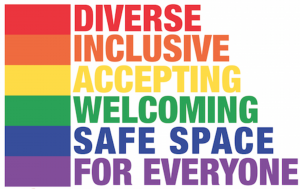Most clients understand that communications with their attorneys is confidential and privileged, and generally not subject to discovery by opposing counsel. The privilege however is not absolute and it can be waived. And one way for a client to waive privilege is to have the communication in the presence of a third party, who is not a client of the attorney’s. Another way is for the client to tell a third party about the communication between himself and his lawyer.
For example, a client who discuss strategy regarding her litigation with her attorney is engaging in a privileged communication. If Client brings her friend to the meeting, the conversation would not be privileged. And, if Client did not bring her friend but reported the conversation to his friend after the meeting was over, the privilege would be lost.
Communicating an otherwise privileged conversation via Facebook is no different than if done via telephone or in person. A case decided earlier this week in a federal court in Nebraska reminds us of this risk. In Kaiser v. Gallup, Inc., the employee-plaintiff filed suit under the ADA against her former employer. During discovery, the employer learned that the plaintiff had communicated with her cousin, who was a lawyer, about events leading up to the plaintiff’s termination. The employer also discovered that the plaintiff had discussed the communications with her cousin (the lawyer) via Facebook.
The employer sought to compel the plaintiff to produce those communications. In response, the plaintiff contended that they were protected by the attorney-client privilege because, at the time the communications were made, her cousin represented her as counsel in her unemployment-benefits claim. The employer argued that, even if the privilege had once applied, the plaintiff waived it when she discussed the communications with third parties. The plaintiff failed to show that she hadn’t waived the privilege and the court granted the employer’s motion.
This case, and others like it, serve as a good reminder that confidential information should not be shared through any medium, including social media. Posting it to Facebook is, contrary to popular belief, the equivalent to sharing it on the phone, in an email, or in person. If it’s a secret—it doesn’t belong on Facebook.
Kaiser v. Gallup, Inc., No. 8:13CV218, 2014 U.S. Dist. LEXIS 92588 (D. Neb. July 8, 2014).




